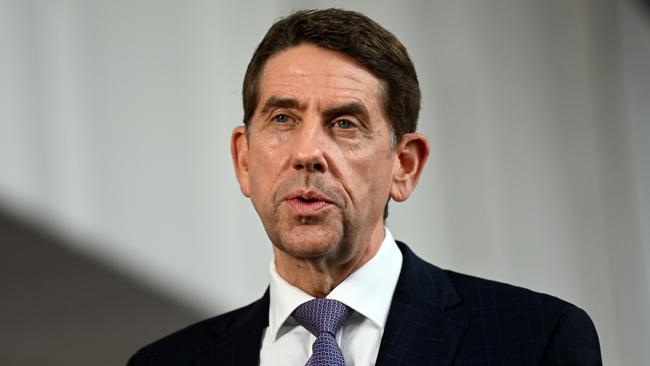Editorial: Huge coal profits a win for Treasurer
OPINION: The tax on the so-called super-profits of coal producers has been proven a clever political move by the Treasurer, but it could have a long-lasting impact, writes The Editor.
Opinion
Don't miss out on the headlines from Opinion. Followed categories will be added to My News.
The extent of the windfall coming for the State Budget from Treasurer Cameron Dick’s new tax on the so-called super-profits of coal producers has finally been revealed – almost $3 billion in one year alone that would otherwise have been added to the bottom line of mining companies will now find its way to the government’s bank account.
It is an extraordinary result, and it underlines why it is no surprise the industry is in the middle of a $40 million public campaign that aims to raise awareness of the fact that taxes on coal producers in Queensland are now the world’s highest – a fact, the industry claims, that will detrimentally impact our competitiveness when it comes to attracting new mining investment.
Maybe so. What is guaranteed is that, as we have consistently said in this column, the imposition of such a massive new tax on a single industry with nothing more than the barest of “consultations” will have a long-lasting impact on investment certainty here – an impact that will endure long after Treasurer Dick vacates the chair.

But on the other hand, it was a clever move politically by Mr Dick to prop up his ailing Budget bottom line by imposing a massive new tax on mining companies that kicks in only when the price of the stuff they are digging out of the ground spikes to historic highs – and Mr Dick did so just as the price of coal indeed hit historic highs, and stayed there.
Mr Dick’s new coal royalties regime adds three extra tiers to the existing scheme – where the government’s take of revenue is 7 per cent when the coal price is less than $100 per tonne (the normal level), 12.5 per cent on sales made at up to $150 per tonne, and 15 per cent on those historically rare occasions prices top $150 per tonne.
Under the new regime, the government now takes 20 per cent when prices hit $175 per tonne, 30 per cent above $225 a tonne – and 40 per cent for prices above $300.
Meanwhile, in NSW, for example, the maximum royalty rate imposed by the State Government on coal remains just 8.2 per cent.
But voters don’t really care. All they see are rich miners being asked to contribute more back to the state when they are making hay.
And by allocating the additional funds to actual things, Treasurer Dick obviously believes he can weather the storm – unlike former prime minister Kevin Rudd when he tried to impose a super profits tax on the nation’s mining industry a little over a decade ago.
Mr Dick will today announce that $3 billion of the cash taken from miners over the next four years will be held for investment in future infrastructure in the regions. That’s hard to argue with.
Some of the money will also be spent “supporting” workers at publicly-owned coal-fired power stations – which we assume is code for a pre-election sweetener deal with the relevant unions.
The problem is that while the big global miners who operate here can no doubt afford to contribute their share, imposing a tax only on super profits fails to recognise the fact that in business your good years usually help offset your lean years.
Prices were so low in 2020, for instance, that the nation’s coal industry lost more than $2 billion collectively in just six months.
This is a tax, then, that shows Mr Dick is definitely a better politician than he is a businessman. But of course we already knew that.




